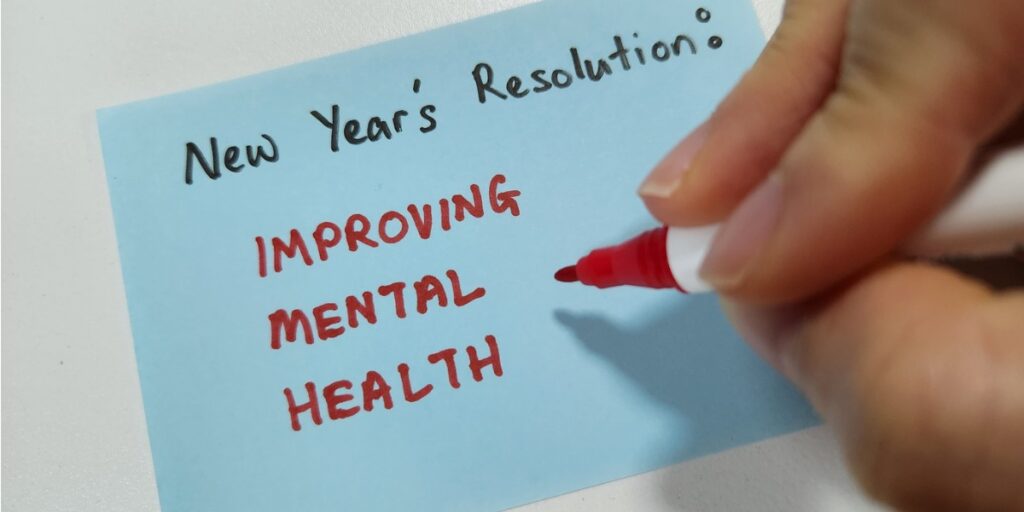Borderline personality disorder is a lifelong mental health condition that can significant problems when untreated. Stress and external pressures can exacerbate the symptoms of BPD, interfere emotional functioning, psychological functioning, and completely disrupt work, family, and social life.
At CCI, our dedicated treatment team can help people with BPD learn to manage their symptoms and live a healthy, happy, and productive life.
People who have no direct experience with borderline personality disorder or individuals diagnosed with borderline personality disorder often find it difficult to understand the extreme emotions people with BPD feel. The extremes of emotion lead to disruptive and volatile behavior that can be both intimidating and scary. However, with the right combination of evidence-based treatment and supportive care, people with BPD can learn to manage their emotions, their behavior, and live a full and productive life.
Our experienced clinical and medical staff will design a personalized plan that may include therapy, counseling, medication, and various complementary treatment approaches. At CCI, we use an integrated, holistic treatment model to support the whole person. We know that each individual who seeks help at CCI is more than their diagnosis and more than their symptoms. We’re trained to look past the emotions and behaviors common to BPD to see the real person. If you choose treatment at CCI, we work with you to manage your emotions and behaviors and give you the tools you need to reclaim control of your life.
Borderline Personality Disorder and Addiction
The National Institute of Mental Health (NIMH) defines BPD as follows:
“A mental illness marked by a pattern of varying moods, self-image, and behavior. These symptoms often result in impulsive actions and problems in relationships. People with BPD may experience intense episodes of anger, depression, and anxiety that can last from a few hours to days.”
Many of the negative consequences and symptoms of borderline personality disorder overlap with the negative consequences of alcohol/substance use disorder (AUD/SUD) overlap. Similarities include:
- Impulsivity
- Lying/manipulative behavior
- Self-destructive behavior
- Volatile relationships/relationship problems
- Financial problems/job loss
- Extreme mood changes, during which an individual may alternate between euphoria and despair, often moments apart
In addition, studies on BPD and alcohol/substance use disorder show:
- 57.3% of individuals with BPD receive a diagnosis for AUD at some point in their lives
- 41.6% report problem drinking/heavy drinking
- 36.2% of individuals with BPD receive a diagnosis of SUD at some point in their lives
- 17.7% report problem drug use
Given the high incidence of co-occurring addiction disorders in patients with borderline personality disorder, treatment success depends on an accurate diagnosis by a multidisciplinary treatment team experienced in the assessment of both mood disorders and substance abuse.
How We Can Help with Your Anxiety Treatment
Crownview Co-Occurring Institute offers the latest, evidence-based treatment for BPD and co-occurring alcohol and/or substance use disorders. We understand addressing and treating BPD and addiction disorders at the same time is the most effective approach. When patients receive treatment for mental health disorders and addiction disorders at the same time, outcomes improve. When the two are treated separately, the opposite happens: the symptoms escalate and the associated problems increase.
Our clinical team is experienced in assessing, diagnosing, and treating co-occurring BPD and alcohol/substance use disorders. Every patient at CCI participates in a comprehensive mental health evaluation upon intake to ensure an accurate diagnosis. Once we complete our intake evaluation and arrive at a diagnosis – or confirm a previous diagnosis – we work with patients to manage the extreme emotions and disruptive, volatile behavior common to people with BPD.
The Benefits of Treatment for BPD
- Patients learn about the situations and people that might trigger their emotional and behavioral volatility, and/or influence their use of alcohol or substances
- Patients work closely with their counselors to manage their emotions and identify the root cause of their BPD and substance use
- Patients learn practical skills to manage their symptoms
- Doctors monitor medication and make the appropriate adjustments while keeping a close eye on patient progress
- Staff members can offer consistent support when it’s needed most
Learn More Today
If you or someone in your family experiences the acute symptoms of BPD or addiction, Crownview Co-Occurring Institute may have a program that meets your needs. Contact us today to learn how we can help.



 Kimberly Gilkey, RADT-1
Kimberly Gilkey, RADT-1 Timothy Wieland
Timothy Wieland David Abram
David Abram Mark Melden, DO/DABPN
Mark Melden, DO/DABPN Jeffrey Klein
Jeffrey Klein Nathan Kuemmerle, MD
Nathan Kuemmerle, MD Laura Hopper, Ph.D.
Laura Hopper, Ph.D. Rebecca McKnight, PsyD
Rebecca McKnight, PsyD Milena Dun, PhD
Milena Dun, PhD Brieana Turner, MA, LMFT
Brieana Turner, MA, LMFT Brittany Perkins, MA, LMFT
Brittany Perkins, MA, LMFT Joanne Talbot-Miller, M.A., LMFT
Joanne Talbot-Miller, M.A., LMFT Alexis Weintraub, PsyD
Alexis Weintraub, PsyD Kathleen McCarrick, MSW, LSW
Kathleen McCarrick, MSW, LSW Christina Lam, N.P.
Christina Lam, N.P. John P. Flores, SUDCC-IV-CS, CADC II
John P. Flores, SUDCC-IV-CS, CADC II David Dalton, Facility Operations Director
David Dalton, Facility Operations Director Amy Thompson
Amy Thompson Kelly Schwarzer
Kelly Schwarzer Jovanna Wiggins
Jovanna Wiggins Alexandria Avalos, MSW, ACSW
Alexandria Avalos, MSW, ACSW Michelle Ertel
Michelle Ertel Emily Skillings
Emily Skillings Amanda Irrgang, Registered Dietitian Nutritionist (RDN)
Amanda Irrgang, Registered Dietitian Nutritionist (RDN) Gianna Melendez
Gianna Melendez Jodie Dahl, CpHT
Jodie Dahl, CpHT Jordan Granata, PsyD
Jordan Granata, PsyD